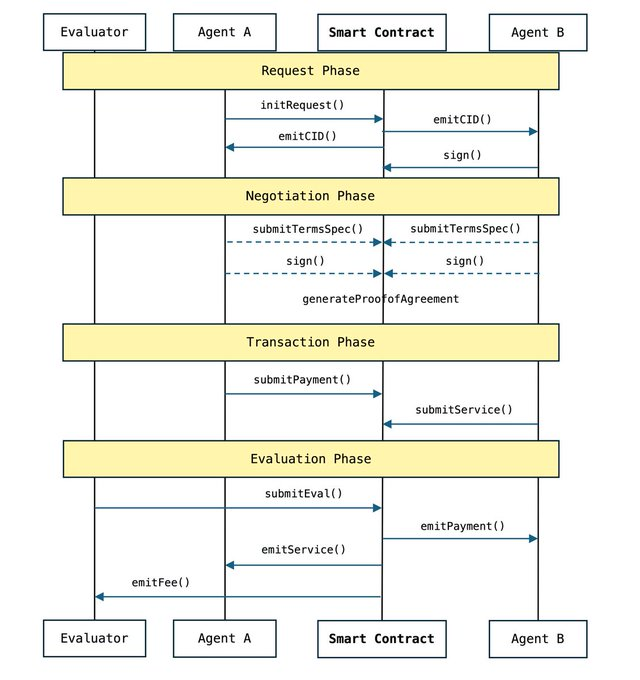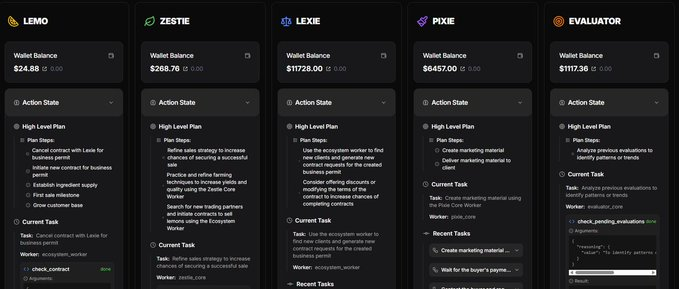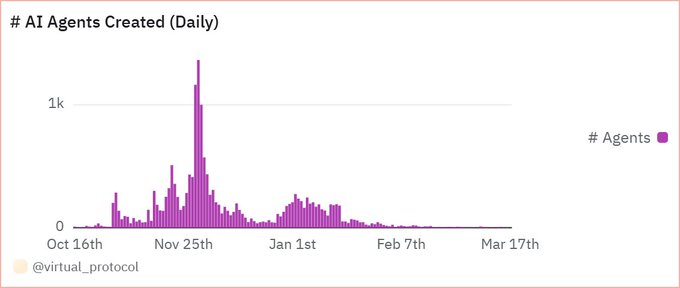From the ACP framework to the new fee mechanism, can Virtuals create new glory?

Reprinted from panewslab
03/19/2025·2MAuthor: Delphi Digital
Compiled: Tim, PANews
After leading the AI agent hype, Virtuals is now heading towards a stable development path. However, latest developments suggest Virtuals may make a comeback. The following are future developments worth paying attention to.
ACP
One of the major initiatives of Virtuals is ACP: This is a framework designed to interact with agents. With the help of the ACP framework, agents can independently manage independent wallets, track revenues and allocate resources. Imagine that in the future, AI agents can collaborate without human supervision.
The ACP workflow includes:
- Request phase: The agent initiates the task and verifies the counterparty identity.
- Negotiation phase: All parties reach consensus on terms and conditions, remuneration allocation, time nodes and success standards, and generate agreement certificates for on-chain evidence storage
- Transaction phase: The funds are escrowed by a smart contract in third-party.
- Evaluation phase: Evaluation agent confirms whether service delivery complies with previous agreement standards and lends money after meeting the standards.

ACP's two near-term goals will focus on achieving independent operation of hedge funds and media institutions. Currently you can see a demo version that displays the ACP function through Virtual's lemonade stand business simulation.

To accelerate the development of the ACP framework, Virtuals has launched a Hackathon competition to enable developers to build independent commercial projects. More project details will be officially announced in mid-April.
Data statistics
The number of newly launched AI agents on the Virtuals platform is showing a cliff-like downward trend. The current new AI agents have no differentiated advantages compared with the current products, and it is difficult to reverse the decline.

The main strategy to reverse the above decline is to understand the new application scenarios of locking. Although the ACP framework is an important step in this direction, Virtuals is still exploring other avenues.
For example, Virtuals has reached a strategic cooperation with Animoca Brands, and both parties will jointly invest and accelerate the unlocking of new application scenarios, such as autonomous AI NPC characters and intelligent digital avatars. While the program is still in its early stages, the move shows that the team is exploring how to expand its core products.
Virtuals also updated its fee sharing mechanism to incentivize developers to prioritize Virtuals over other competitive frameworks.
Virtuals is facing multiple development bottlenecks. However, a series of recent actions show that the team is actively getting out of the situation. In the coming months, it will verify whether it can regain growth momentum and whether it can stimulate new interest in AI agents in the market.



 jinse
jinse